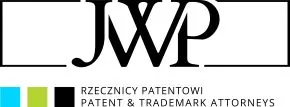- within Technology topic(s)
- in Turkey
The protection of intellectual and industrial property rights goes beyond obtaining a patent or right arising from registration. The activities to be performed by the right holder or their attorney include not only ongoing monitoring of competitors' activities or settlement of periodic fees, but also updating company data.
When registering changes effected within companies, the Polish Patent Office is obliged to verify the facts of the case and does so on the basis of the documentation provided by the client or the attorney they appoint. Despite the lack of guidance from the Patent Office regarding the type of documentation to be accepted or its authorization, a wealth of experience that patent attorneys appearing before this body have helps almost completely eliminate any potential problems related to the rejection of applications. So why is more and more correspondence being exchanged between attorneys and the Office as regards such registration of changes within companies, which significantly prolongs the entire process?
Attorneys of foreign companies wanting to register in Poland changes effected within these companies, such as changes of their name or the right holder's address, ownership assignments and mergers, rely on the legal system of their own countries when sending relevant documentation, which is incorrect. Each Patent Office follows the provisions of law of the country where it is established, and as a result the requirements it imposes do not have to be the same as in other countries, both inside and outside Europe. This can be surprising for foreign companies, which are required to obtain additional certificates to accompany the documents already in their possession in order to register a specific change in Poland. Polish clients treat such requirements of the Polish Patent Office with more understanding, and in their case the whole process is faster than with foreign companies. A dispute with an attorney or pressure exerted upon them to submit incomplete documentation to the Office against their recommendations is less common. And the failure to file all required documents results in the Patent Office's official decisions informing about formal deficiencies and requesting for missing documents to be supplemented.
Most frequently, a bone of contention between the Office and the company applying for said registration is the Office's formal requirement concerning document authorization. In Poland, to register a change, it is not sufficient to produce a document proving its occurrence. From the Office's perspective, it is equally important to demonstrate that the signatory has been authorized to sign the document. In the case of foreign entities, clients' representatives have a serious problem to tackle. Experience shows that it is difficult to convince a client that the position they hold in their company, even at the top of the corporate ladder, does not release them from the obligation to prove to the Polish Patent Office their authority to represent the company. It should be emphasized here that having signed a deed of assignment, merger or any other document demonstrating the change that has been effected within the company, the company's Managing Director, President or Treasurer alike must present a relevant document confirming their authority in this regard. The best example of such authorization is a notarial certificate, in which a notary certifies, on the basis of the documents provided to them, that the person was duly authorized to solely (or jointly) represent the company. In turn, in the case of Polish clients, the most frequently presented document is an extract from the National Court Register describing the manner of the company's representation and listing the persons entitled to represent it.
The submission of incomplete documentation demonstrating a change effected within the company is followed by the receipt of an official request to submit the missing documents. The time to respond to such a letter depends on whether we are dealing with a Polish or foreign entity. For a Polish client, a statutory period is 1 month, while a foreign client has 2 months to submit the missing documentation. Unfortunately, should such documentation not be delivered by this deadline, the previously filed application for change registration is rejected on the grounds of formal deficiencies.
Correspondence with the Patent Office entails additional costs for the entrepreneur, but such extra fees can be avoided. There is no doubt that the Polish Patent Office has stricter formal requirements compared to some other European patent authorities. That is why obtaining and providing additional documents certifying the authority of each signatory involved in the change within the company to act will allow for fast registration of such a change, without additional costs being incurred.
The content of this article is intended to provide a general guide to the subject matter. Specialist advice should be sought about your specific circumstances.


